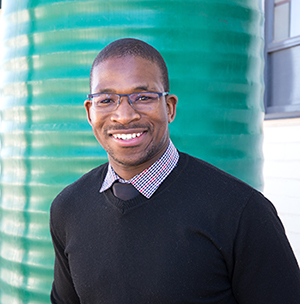Latest News Archive
Please select Category, Year, and then Month to display items
31 July 2020
|
Story Lacea Loader

As a public higher-education institution in South Africa with a responsibility to contribute to public discourse, the University of the Free State (UFS) will be presenting the 3rd UFS Thought-Leader Series in collaboration with Vrye Weekblad as part of the Vrystaat Literature Festival’s online initiative, VrySpraak-digitaal.
This year, higher-education institutions
globally are placed in the challenging context of COVID-19. Aware and grounded in the reality that the world will not return to the normality of pre-COVID-19, our responsibility as scholars still remains to contribute to public discourse and to offer
innovative solutions that will impact the lives of people nationally and globally in order to help them understand and adapt to a new world order.
Against this background and context, this year’s debates focus on ‘Post-COVID-19, Post-Crisis’,
with Health and Modelling, Politics, Economy, and Predictions for 2021 as the sub-themes. Placed in a COVID-19 context, and in lieu of the Vrystaat Arts Festival,
the series will be presented virtually in the form of one webinar per month during the period August 2020 to November 2020.
Date: 13 August 2020
Topic: Health
and Modelling
Time: 11:30-13:00
RSVP: Alicia Pienaar, pienaaran1@ufs.ac.za
Facilitator:
Max du Preez
Editor: Vrye Weekblad
Biography
Introduction and welcome:
Prof Francis Petersen
Rector and Vice-Chancellor, UFS
Panellists:
Prof Salim Abdool Karim
Director: Centre for the AIDS Programme of Research in South Africa (CAPRISA)
Chair: South African Ministerial Advisory Committee on COVID-19
Biography
Prof Glenda Gray
President and CEO: South African Medical Research Council (SAMRC)
Biography
Prof Felicity Burt
NRF-DST South African Research Chair in vector-borne and zoonotic pathogens research
Biography
University of the Free State strives towards going ‘green’
2017-08-07

Benedict Mochesela from University Estates on the
UFS Bloemfontein Campus. A total of thirty brand-new
water storage tanks, between 5 000 and 20 000 litres,
were installed.
Photo: Anja Aucamp
Eight provinces, including the Free State, were declared disaster areas last year due to the ongoing drought. This had a devastating effect on the agricultural sector, leaving many communities dry.
University Estates at the University of the Free State found an ideal project to make university buildings greener. A total of thirty water storage tanks, varying in size from 5 000 to 20 000 litres, were installed at various buildings on the Bloemfontein Campus. As a pilot phase, these tanks were specifically installed at residences and buildings with high traffic volumes.
Importance of water tanks at the UFS
According to Benedict Mochesela, Project Manager of this initiative, the purpose of the project is to harvest rainwater, which will be used during emergencies when the campus does not have water and the emergency water storage facility is depleted. “This water is not intended for drinking, but for the flushing of toilets,” says Mochesela.
He mentioned that the water will also be used for watering flowerbeds and gardens when the water has been standing for a long time without being used.
Recycling water: An initiative to protect the environment
A number of water storage tanks are already in place at the Qwaqwa Campus and a preliminary phase of using grey water from residences is currently ongoing at the South Campus. Grey water is made up of bath, shower, and bathroom sink water. The water is reused for toilet flushing as well as for irrigation purposes.
“Recycling of water is one of a number of initiatives the university intends to undertake to ensure and show the community that this institution remains conscious of the environment and to changes which we continuously need to adapt to.”